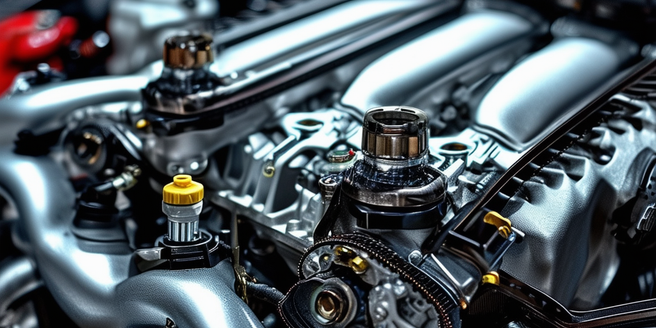
Understanding the Basics of Your Vehicle
The key to identifying potential automotive defects starts by understanding the basics of your vehicle. To familiarize yourself with these basics, you might want to take the time to read your car’s manual or conduct some research online. By thoroughly learning and observing the automotive mechanism, you will naturally spot subtle differences. As a car owner, it is imperative to understand the normal functioning of your vehicle including the sounds, performance, and appearance. Regular maintenance checks and services can also be helpful in early detection of potential issues. This knowledge will equip you with the skills to notice any abnormalities that might indicate a potential defect. When you understand your car’s baseline operations, it becomes easier to detect when something begins to vary from normal operation.
Common Signs of Automotive Defects
Some common signs of automotive defects include irregular noises or vibrations, leaks, frequent stalling, reduction in engine power, and decrease in fuel efficiency. For instance, a strange rumbling noise might suggest issues with your exhaust system. It’s also worth paying attention to any warning lights that may come on your dashboard. Sometimes, these lights can come on due to a minor issue, but they can also indicate a more severe problem. Another signal not to be ignored is unusual smell like burning oil or coolant which may signal a serious mechanical issue. Such signs could potentially indicate failing vehicle components. Remember, it’s always better to be overly cautious and have the car checked out by a mechanic as soon as you notice anything unusual.
Types of Potential Automotive Defects
Automotive defects, typically classified into electrical, mechanical, and safety categories, can cause significant issues both on and off the road. Electrical defects affect the operation and performance of a vehicle, commonly involving the malfunctioning or failure of essential vehicle components, such as the battery, alternator, starter motor, or wiring system. These defects result in substantial car trouble should these parts fail. Mechanical defects are often associated with the vital moving parts of a vehicle, including the engine, transmission system, axles, and brakes, and can prove troublesome and dangerous when they malfunction. Safety defects pose threats to the car’s occupants by severely compromising important safety features like airbags, seatbelts, or the vehicle’s structure, having serious implications. Being aware of these defects and their potential effects enables proactive measures to prevent issues and ensures the safety, integrity, and longevity of vehicles.
Car Maintenance Tips for Preventing Defects
Keeping your vehicle in top condition involves regular checks, maintenance, and cleanups, all of which curtail the risk of various automotive defects significantly. These tasks, crucial for your car’s health, range from oil changes, exhaustive brake examinations, engine tune-ups to regular tire rotations. Not only this, it’s vital to keep your vehicle’s components clean and free of debris, including consistent washing and waxing the body, vacuuming the interiors, and even degreasing the engine. This prevents buildup of materials like dirt or oil that could damage these components, maintaining the aesthetic quality and forming an essential preventive strategy.
Regular vehicle maintenance ensures both proactive measures and responses to potential issues. The systematic approach that includes checks, services, and cleaning helps extend your car’s life and protect your investment. It also substantially reduces the chances of major defect-related breakdowns, which are frequently untimely and expensive. In summary, adopting a consistent servicing and maintenance regimen for your vehicle safeguards against unforeseen incidents, and enhances the vehicle’s overall longevity and performance.
What to Do if You Suspect a Defect in Your Car
If you suspect a defect in your car, it is crucial to get it inspected by a professional mechanic as soon as possible. Ignoring a potential defect could lead to further damage and potentially dangerous situations. Not only can this save unnecessary costs, but it can also protect you from unexpected breakdowns. In addition to getting your car checked once you spot a defect, regular maintenance is also vital to prevent future issues. Your safety is paramount, so always ensure your vehicle is in a serviceable condition before using it. Regular maintenance checks can also preemptively identify issues before they become larger problems. It’s also important to document any defects found, as this can be vital in identifying recurring issues or potential manufacturer defects.
